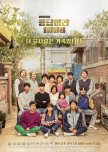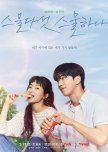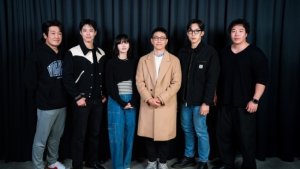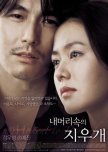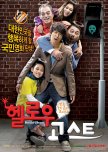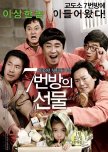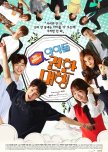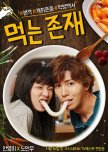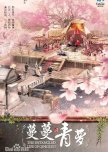 Drama & Film Winners Of The 61st Baeksang Arts Awards
Drama & Film Winners Of The 61st Baeksang Arts Awards It is a story that resembles a tribute to our parents' tender and still youthful seasons when they were so young, including the story of mother's first love, father's heroic tales, grandma's rebellious youth, and grandpa's romantic era. Ae Sun is rebellious but gets nervous every time she rebels. She is not well off but is always shining and full of positivity. She dreams of becoming a poet, although she cannot attend school, and she is a bold character who doesn’t hide any emotions. Gwan Sik is an extremely diligent and quiet character. Romance is not a strength for him, and he doesn’t know how to act if Ae Sun cries or laughs, but he is a silent warrior who only loves Ae Sun from the very beginning and pours his all into loving her. (Source: Korean = Newsen, Soompi || Translation = Wikipedia, kisskh) Edit Translation
- English
- 한국어
- 中文(台灣)
- 日本語
- Native Title: 폭싹 속았수다
- Also Known As: Insaeng , Life , Pogssag Sogassuda , Pokssak Sogasssuda , Sugo Manheusyeossseubnida , Thank You For Your Hard Work , You Have Done Well , You Were Fooled , 수고 많으셨습니다 , 인생
- Director: Kim Won Suk
- Screenwriter: Im Sang Choon
- Genres: Romance, Life, Drama
Where to Watch When Life Gives You Tangerines
Cast & Credits
- IU Main Role
- Park Bo Gum Main Role
- Moon So RiO Ae Sun [Middle-age]Main Role
- Park Hae JoonYang Gwan Sik [Middle-age]Main Role
- Kim Yong RimPark Mak Cheon [Gwan Sik's grandmother]Support Role
- Na Moon HeeKim Chun Ok [Ae Sun's grandmother]Support Role
Reviews

A MASTERPIECE FOR THE AGES
I honestly underestimated this drama. I didn’t expect it to be this GREAT, this PHENOMENAL, this AMAZING?! When Life Gives You Tangerines isn’t just a drama; it’s a masterpiece and a masterclass in storytelling. I had high hopes going into it, but after being let down by a few dramas before, I tried to manage my expectations. However, my gut feeling told me this would be special—and boy, was I right and so, so wrong at the same time! I didn’t just enjoy it; I was completely captivated, and it changed me in ways I can’t fully describe. There was a me before watching this show, and now, there’s a me after. It’s one of those stories that doesn’t just end when the show does; it stays with you and reshapes how you think. I never imagined a drama could make me reflect on my own life so deeply. From the first episode, I was hooked. And by the end, I was left emotionally wrecked in the most beautiful way.This isn’t just a love story—it’s about resilience, survival, and the kind of love that doesn’t need to be shouted from the rooftops. The bond between Gwan Sik and Ae Sun is so pure, so grounded in reality, that you can’t help but feel every emotion they go through. From their awkward yet beautiful first kiss to the way they support each other through everything life throws their way, their relationship is everything I wish for in a partner. It’s not always easy or perfect, but it’s real, and that’s what makes it so powerful. Their connection transcends time, and you feel it in every shared glance, every quiet moment between them. The scene where Gwan Sik jumps into the stormy sea to get to Ae Sun—that scene will forever be etched in my mind. It’s not just about love, it’s about sacrifice, and the lengths people will go to when they care for someone deeply.
And then there’s the love between families. The dynamic between Gwang Rye and Ae Sun is heartbreaking yet beautiful. Gwang Rye’s sacrifice for her daughter, how she worked so hard as a Haenyeo, hoping to spare Ae Sun from that life, speaks to the lengths mothers will go to for their children. It’s such a layered portrayal of motherhood and the ways that generational trauma can shape how we live our lives. Ae Sun’s journey is a reflection of that tension between breaking free from what’s expected and the reality of what she has to face.
The show also delves into the societal dynamics and gender roles that are imposed on women, and it’s something that really stuck with me. The way women are often expected to stay in their place, how the world around them limits their options—When Life Gives You Tangerines doesn’t shy away from showing these struggles. Ae Sun’s character feels like a rebellion in itself. She had dreams, she had ambitions, but life didn’t always give her the chance to pursue them. She wanted to be a poet, but the world she lived in had other plans and challenges for her to overcome first. That tension between following your heart and doing what’s necessary for survival is explored so well.
It’s also a story about breaking generational trauma and crafting your life the way you think it should be lived. One of the most moving scenes for me was when Gwan Sik, sitting at the men’s table, looked over at his family and decided he wanted to eat with them. It’s a simple act, but it means everything. He chooses his family over tradition, over expectations. And that moment, when he gives his daughter his beans, is just one of those gestures that speaks volumes about the kind of father he is. It was a small gesture, but one that said everything about the kind of man he was—and about love in its truest form. Gwan Sik showed Geum Myeong what it is to be a gold standard father, husband, and man. He is the standard. It’s not about grand gestures, it’s about the everyday acts of love that define who you are.
The acting is beyond words. Every actor brought their all to the table, and their performances were so raw and authentic that you couldn’t help but be drawn in. The chemistry between the leads especially IU and Bo Gum is electric, and the way the supporting cast adds depth to the world around them just elevates the entire story.
The cinematography is another element that makes this drama feel almost poetic. Every shot feels like it has meaning, and the way the visuals enhance the story is nothing short of incredible. The quiet moments, the big emotional scenes, everything is framed perfectly, adding another layer of emotion to the narrative.
When Life Gives You Tangerines isn’t just a drama you watch; it’s a drama you live. It stays with you, changes you, and leaves you thinking about the characters long after the last episode. It’s all so beautifully crafted that it feels like more than just a story. It’s an unforgettable experience about how people navigate life, love, hardships and the weight of the choices they make, and it’s one I will carry with me forever.
Full review coming soon. Stay tuned!

It's worth watching in commemoration of Women's Month
Set in the 1950s, this drama follows Ae Sun, a young woman raised in poverty, whose life is marked by hardship, much like the tangerines (the sour and challenging circumstances) surrounding her. Her mother, a struggling haenyeo (female diver), works tirelessly to provide for her family, including two younger children and a second husband, yet barely scrapes by. Ae Sun harbors deep resentment toward her mother’s circumstances and dreams of one day lifting her out of misery. Fierce, determined, and unafraid to stand up for what is right, Ae Sun traverses a world that offers women few choices, resigning them to lives as maids, divers, or housewives.Watching this story unfold has made me profoundly grateful to be a woman in the 21st century, where opportunities and freedom are far greater. IU delivers a compelling performance, making Ae Sun’s struggles feel deeply personal and poignant. The drama also explores the timeless notion of love as an unwavering force—the idea that two people, bound by devotion, can withstand any adversity together. In the past, love seemed simpler: you fought for each other and stayed together no matter the obstacles. Today, such ideals alone are rarely enough to sustain a relationship.
The first four episodes have been great, and for now, I’m eager to continue watching.
UPDATE: I finally finished it, and I must say, it’s such a heartwarming story. It was a series of laughter and tears following Ae Sun’s journey from her childhood to her later years. Life truly has its share of tangerines, but the challenges we face only make us stronger because every cloud has a silver lining. Kudos to each cast member for their outstanding performances throughout the show.
Recent Discussions
| Title | Replies | Views | Latest Post | |
|---|---|---|---|---|
| What was the best scene for you? by Cora | 9 | 0 | Mad-Clown Dec 22, 2025 | |
| Timeline reference by Cora | 14 | 0 | Moonbeam Nov 14, 2025 | |
| So... I Can’t Watch This Because I’m Not a Mom? by Jiang Xuening ZENAR | 9 | 0 | bayanoh Oct 4, 2025 | |
| Explanations for little cultural things? by tichuuuuu | 2 | 0 | 2busywatching Apr 10, 2025 | |
| Bu Sang Gil's redemption by Xiao Yu | 7 | 0 | Rima-chan Apr 8, 2025 | |
| Which is ur fav volume? by Yuichin | 5 | 0 | Butterfly Apr 7, 2025 | |

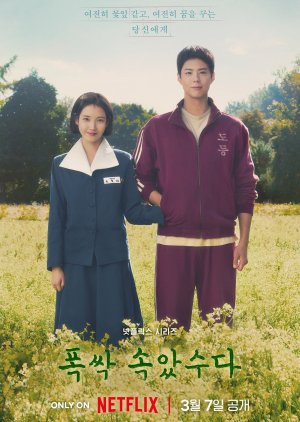








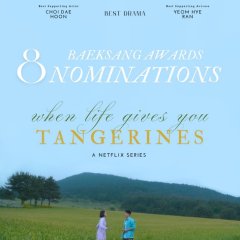
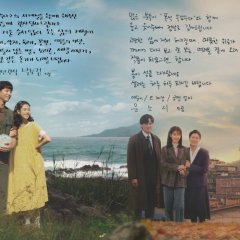
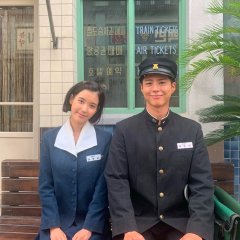
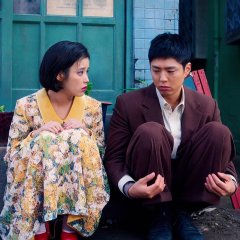
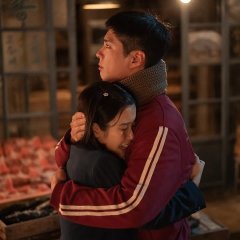
 2
2 3
3 1
1 1
1